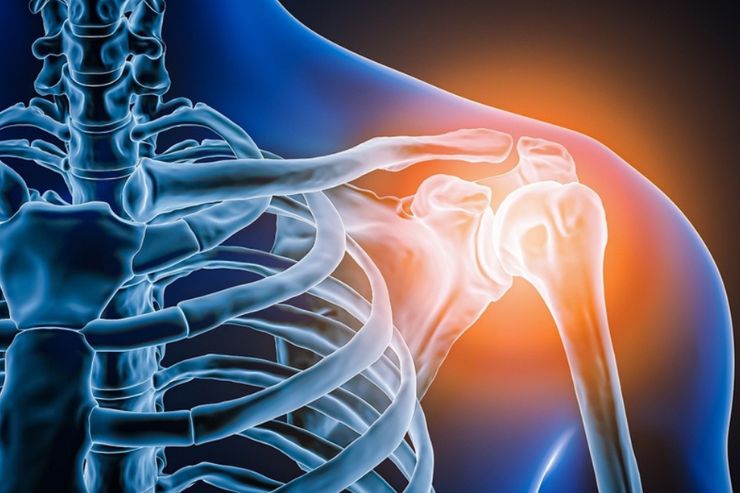Understanding Shoulder Replacement Surgery and Post-Surgery Care
Jaipur Joints Care
Stronger Shoulders, Smoother Recovery Ahead
This procedure involves replacing the damaged parts of your shoulder joint with smooth, artificial parts. The surgery helps relieve pain, improve movement, and help patients get back to their regular daily activities. Dr. Rakesh Verma respects you and your needs, uses modern surgical approaches to meet your goals, and guides the patient through every step of the recovery process.
Shoulder replacement surgery is a safe and effective long-term solution. With appropriate guidance and rehabilitation, most patients achieve good outcomes and improve their quality of life.

Symptoms of Shoulder Arthritis & Dysfunction
You can experience shoulder pain in many ways which often indicates underlying issues which need medical attention. Below are some symptoms:
- Constant pain in the shoulder joint.
- Less motion in the shoulder.
- Weak arm or difficulty in lifting objects.
- Swelling, tenderness, or warmth around the shoulder joint.
- Grinding, popping, or clicking sensations during shoulder movement.
- Difficulty performing activities of daily living, such as dressing, reaching overhead, or combing hair.
If you have any of the above symptoms, especially if they persist or interfere with your daily life. So, it is necessary to consult with best orthopedic surgeon in Jaipur for an accurate diagnosis.
Indications of Shoulder Replacement Surgery
Check out the factors that lead to the need for this surgery:
Osteoarthritis is often the common reason for undergoing shoulder replacement surgery. This condition, also known as degenerative joint disease, is present when the protective cartilage covering the ends of bones in the shoulder joint gets worn down gradually over time, and as a result pain, inflammation, and stiffness occurs.
In rheumatoid Arthritis, the body's immune system attacks the synovium which is the lining of the membranes that surround the joints. This way it results in inflammation, pain and eventually damage the shoulder joint.
Extreme fractures or dislocations of the shoulder joint can hurt the cartilage and cause post-traumatic arthritis which leads to chronic pain and less mobility.
Sometimes a torn rotator cuff can make your shoulder joint weak and cause instability, pain, and eventually arthritis if not treated timely.
Necrosis happens when the blood supply to the bone is disturbed which leads to bone death and sometimes shoulder joint collapses.
Repeated stress and trauma on the shoulder joint care can also cause fractures that may need shoulder replacement surgery for accurate healing and restoration of function.
Do's and Don'ts After Surgery
It is necessary to follow the surgeon's instructions after surgery for faster recovery and best outcomes.
Do’s
- Follow your surgeon's instructions for your rehabilitation program which will include exercises that will strengthen the shoulder muscles and improve your range of motion.
- Keep the surgical incision, clean and dry to avoid an infection. Follow what your healthcare provider's suggests.
- Use assistive devices (such as slings or braces) as recommended by your surgeon, to support and protect the shoulder joint during the initial healing phase.
- Gradually increase your activity level but avoid heavy lifting and don't engage in strenuous activity until cleared by best knee doctor in Jaipur.
- Always go for follow-up appointments to monitor your progress.
Don’ts
- Do not put too much stress on your shoulder joint, especially during your initial recovery phase.
- Avoid heavy lifting, sudden movements, and sports that involve physical contact or risk of injury to the shoulder.
- Do not smoke or use tobacco products, since it will impair and hamper the healing process and increase your risk of complications.
- Do not miss your medications (pain relievers and antibiotics) as ordered by your physician.
- Do not drive or operate heavy machinery until you have satisfactorily regained strength and motion in your shoulder, and your surgeon clears you.
Stick to these guidelines and having open communication with your surgeon can make your recovery journey smooth, so you will get the best possible outcomes after your surgery.
Get your normal life back. Contact us at +91 95300 19461 to schedule an appointment.
